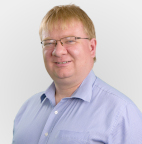Events at Mid-Staffordshire NHS Foundation Trust during the late 2000s came as a shock to the British public. Concerns were raised by patients' relatives about poor standards of care on the wards at Stafford hospital, leading to an inquiry which reported in 2010. 1 Problems with feeding of patients, soiled bedclothes, and triage in the accident and emergency department being undertaken by untrained staff caused a public outcry.
The 2010 inquiry recommended an examination of why problems went on for a number of years, without action from the bodies charged with regulating NHS hospitals. The findings of the 2013 Francis Report2 include a large number of recommendations for the NHS in the future.
the effect on today's medical student
The shadow of what happened will remain over the NHS for many years to come – probably after the qualification dates of most Nucleus readers. But some effects will be much more immediate. Student and juniors' training is likely to be quite directly affected. Paragraph 1.172 emphasises this:
'Medical education and training systems provide an opportunity for enhancing patient safety. Students and trainees should not be placed in establishments which do not comply with the fundamental standards, and those charged with overseeing and regulating these activities should, like all other participants in the system, make the protection of patients their priority.'
Recommendations 159 and 160 then build on this: 'Surveys of medical students and trainees should be developed to optimise them as a source of feedback of perceptions of the standards of care provided to patients. The General Medical Council should consult the Care Quality Commission in developing the survey and routinely share information obtained with healthcare regulators. Proactive steps need to be taken to encourage openness on the part of trainees and to protect them from any adverse consequences in relation to raising concerns.'
Although the onus is on medical schools and the GMC, it is clear that responsibility for ensuring patient safety isn't just the domain of consultants, or managers. Students' opinions areimportant, and the process suggested will rely on everyone being engaged.
Morale might also be affected by a report that criticises NHS work, a point made by the Anglican Bishop of Lichfield soon after the report was published.3 He noted that staff currently working at Stafford Hospital have been trying to make improvements for some years. It is not necessarily easy for a student to get the ad hoc teaching that is so important when morale is low, nor will low morale encourage new entrants to medicine.
how did things go wrong?
Two of the many problems outlined stood out as I read the 'Executive Summary' (which comes in at 125 pages … the full version reaches more than 1,800 pages for the intrepid!). One, widely reported, was the perception that meeting government targets had been prioritised over care of individual patients. The second was that despite a large number of organisations regulating hospitals, things still went wrong, and concerns were not acted upon when raised.
I very much doubt that people went to work deliberately planning to do the wrong thing, or to harm patients. The vast majority, whether Christian or not, enter the medical and nursing professions wanting to help patients. So how did things go wrong? The report details what happened, and gives lots of suggestions, but I'm not sure it touches on the real problem.
Surely we have to look back to human nature. 'Make the care of the patient your first concern' is the opening line of the latest version of Good Medical Practice (published by the UK's General Medical Council). (4) This seems (and is) a simple instruction – until we think deeper.
We often want to put others (in this case our patients) first. But we know that we don't always do what we want to do. Paul in Romans 7 describes the tension: 'For I do not do the good I want to do, but the evil I do not want to do-this I keep on doing' (Romans 7:19). The tension is clear for the Christian, but of course no-one, whether Christian or not, does the right thing by default. 'For all have sinned and fall short of the glory of God' (Romans 3:23).
Temptation takes many forms; in this case the temptation to put other things ahead of patient care. Even though as a medical student you may not be directly accountable for the care of patients, your role on the wards can still be significant. A patient can greatly benefit from company and chatter as your clerk them – particularly if they have been in hospital for some time, or have few visitors. You may well get involved with tasks which have significant impact on patient safety; think of the consequences if you mislabel a blood sample for cross-matching.
Even early in your career, other things can get in the way. Spending time in the library takes you away from patients (who are a much better learning tool than a book), and is sometimes motivated by a desire to work harder than everyone else. The balance between important day-to-day matters (like spending time with a girlfriend or getting away on time for a church group) and spending time with patients needs to be thought through.
Such difficulties only increase as your career goes on. Targets still exist in the NHS. GPs who don't meet them will see their practice's funding fall; consultants who don't meet them may find their job at risk. It is not just as simple as saying 'remember the patient, forget the target'. It appears that at Stafford, tremendous pressure was placed on some managers to ensure that clinical staff reached targets. Doctors are often in a stronger position to speak out about problems like this than others, and need to take a lead in doing so.
towards some answers
The problems described are big issues, and can seem intractable. Human nature is such that there will always be a tendency to cover up, and to avoid blame. No number of systems set up to regulate hospitals will change this fact.
Of course we can try to ameliorate the effects of the human sin. Physical medicine itself does this. But such efforts will have only limited results. A patient who is resuscitated heroically and 'saved' will still die eventually – even if years later. Medicine may be able to conquer premature death in many situations, but it cannot conquer death. Only Jesus has conquered death. Only by believing and trusting in Jesus, and receiving his forgiveness and new life through him will a patient be truly saved from death.
The NHS of course isn't a person in need of conversion. But some analogies can be drawn. Christian input to healthcare is vital if we are to be able to keep focused on patients. 'Make the care of the patient your first concern' is very hard to live up to from within your own resources. Serving God first, as we are instructed in Colossians 3:23, is the solution. It isn't just about having Christians working in the NHS. It is about having Christians who truly try to put God first at work; it is in this way that it will be possible to really put patients first.
As individuals, I hope the Francis Report will remind us to work as if for the Lord in our medical work, thus enabling us to work from his perspective, and really put patients first. Collectively, as the church, it reminds us that we must engage with healthcare as part of our engagement with society.
New Archbishop of Canterbury Justin Welby said as he preached at his enthronement: (5) 'Today we may properly differ on the degrees of state and private responsibility in a healthy society. But if we sever our roots in Christ we abandon the stability which enables good decision making. There can be no final justice, or security, or love, or hope in our society if it is not finally based on rootedness in Christ. Jesus calls to us over the wind and storms, heed his words and we will have the courage to build society in stability.'
We may think of lots of things we can do to help prevent a repeat of what happened at mid- Staffordshire: raising concerns, making sure our own patient care is good, perhaps becoming managers ourselves. All these things are good. But it is only in living and speaking for Jesus ourselves, and encouraging others to do the same, that we will really see God's best for our care of patients.
































